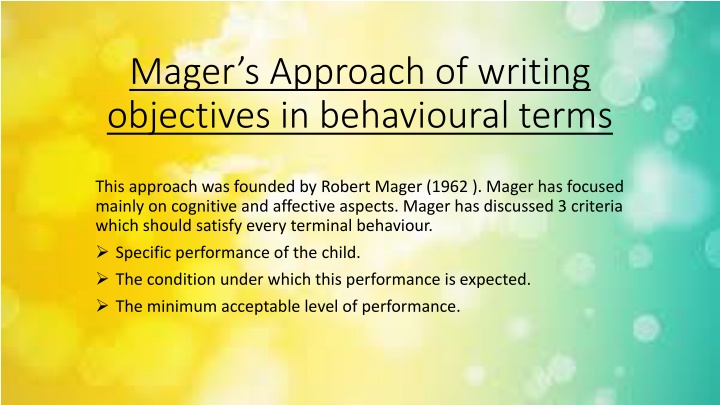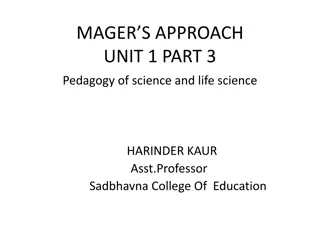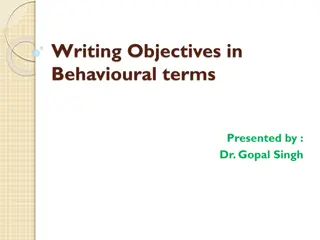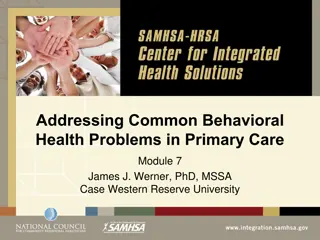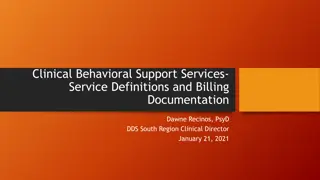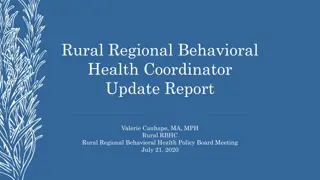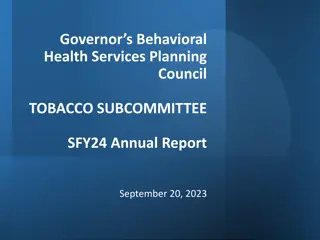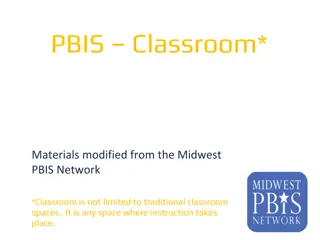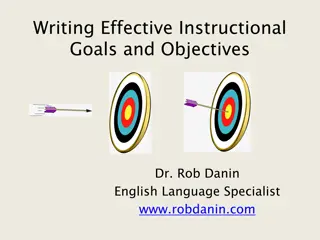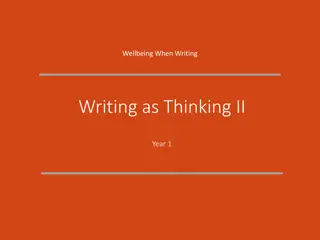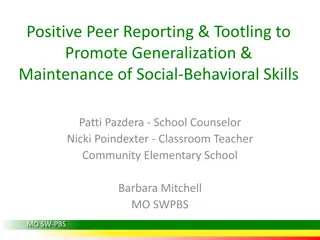Effective Strategies for Writing Behavioral Objectives in Education
Learn about Robert Mager's approach to writing objectives in behavioral terms, focusing on cognitive and affective aspects. Discover the criteria for defining terminal behaviors, explore action verbs for cognitive and affective objectives, and delve into impulsion, manipulation, co-ordination, naturalization, and habit-formation in educational settings.
Download Presentation

Please find below an Image/Link to download the presentation.
The content on the website is provided AS IS for your information and personal use only. It may not be sold, licensed, or shared on other websites without obtaining consent from the author.If you encounter any issues during the download, it is possible that the publisher has removed the file from their server.
You are allowed to download the files provided on this website for personal or commercial use, subject to the condition that they are used lawfully. All files are the property of their respective owners.
The content on the website is provided AS IS for your information and personal use only. It may not be sold, licensed, or shared on other websites without obtaining consent from the author.
E N D
Presentation Transcript
Magers Approach of writing objectives in behavioural terms This approach was founded by Robert Mager (1962 ). Mager has focused mainly on cognitive and affective aspects. Mager has discussed 3 criteria which should satisfy every terminal behaviour. Specific performance of the child. The condition under which this performance is expected. The minimum acceptable level of performance.
Pedagogy Of Science Teaching Dr. Anita Singh Associate professor B.Ed Department
List of Action Verbs---( Cognitive Objectives)) Objectives Action Verbs Define,Select,State,List,Recall,Recognition ,Measure 1. Knowledge 2.Comprehension Explain,Interpret,Translate,Indicate,Judge Compute,Predict,Assess,Demonstrate,Use,const ruct,Find. 3. Application Analyse,Divide,Discriminate,Separate,Conclude, Criticize 4. Analysis Discuss,Organize,Generalize,Organize,Summariz e,Select Judge,Avoid,Criticize,Defend,Identify, evaluate 5. Synthesis 6.Evaluation
List Of Action Verbs ---(Affective Objectives) ) To Accept, To Receive , To prefer ,To Listen, To State, To Perceive, To Select, To Beware Receiving To Answer, To State, To List, To Select, To Develop, To Record Responding To Accept, To Recognize, To Participate, To Indicate , To Decide, To Influence,To Develop,To Attain Valueing To Relate,To Differentiate, To Analyze, To Demonstrate, To Compare Conceptualization To Select, To Organize, To Judge, To Correlate, To Determine, To Form, To Associate Organization To Develop, To Revise, To Change, To Face, To Identify, To Accept To Decide Characterization
Impulsion Distinguish,Hear,See,Smell, Taste,Touch Manipulation Adjust,Approach,Locate,Place,Position, Prepare Control Copy,Determine,Discover,Duplicate,Imitate Adjust , Build, Illustrate, Indicate, Manipulate Mix, Setup Co-ordination Adapt, Build , Change, Develop, Supply Naturalization Construct, Create, Design, produce Habit-Formation
